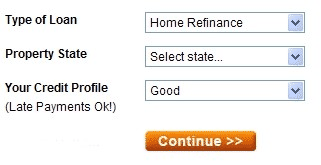Home Buyer Tax Credit: Too Little To Help
The First-Time Home Buyer Tax Credit stuffed into the Housing and Economic Recovery Act of 2008 to stimulate demand for housing or ease the mortgage crisis, will not have the desired effect. One of the reasons is this supposed tax credit is really just a loan!
First-Time Home Buyer Tax Credit Examined
Let’s examine what real tax credits are and then compare that to the First-Time Home Buyer Tax Credit. Typical tax credits are real motivators that change behaviors since they are not deductions that lower your taxable base income, but a dollar-for-dollar reduction of the tax owed. For example, if after all is said and done, your tax bill to the IRS is $7500 and you have a $7500 tax credit you qualified for…you’d own nothing in tax!
Tax credits are powerful. But not this new First-Time Home Buyer Tax Credit, but before we discuss why let’s review the basics first:
A Golden Opportunity Missed
A first time home buyer is defined as someone who has not owned a home as their primary residence in the three years prior to the new purchase. Second or investment home ownership doesn’t disqualify a buyer, but spousal previous ownership does. If they really wanted to stimulate the economy, law makers would have lowered this to two or even 1 year and deleted the spousal disqualification rule.
With a maximum tax credit of only $7500, it’s not a very big motivator when it’s attempting to influence a big decision like going into mortgage debt for 30 years or buying a home that’s still dropping in value.
Congress should have made the credit a percentage of the sales price…say 15%. That would motivate someone who thought the home they buy today will lose another 15% in coming months. This would equate to $15,000 on a $100,000 home…and since they made it a loan (we’ll get to that in a minute) Uncle Sam gets the money back, so why be so stingy?
Are we trying to stimulate home buying or not?
Availability ends June 30, 2009 which is a little short given home values around the country are still dropping. If they had structured it my way, the deadline would be tolerable. But they didn’t, so it’s not.
I’ve got no beef with the income qualifications since they don’t block most of those in the “first time home buyer” category.
Repayment of the tax credit is typically going to be about $500 a year and completely repaid in 15 years. Why ask for repayment of such a small credit? Once folks realize they are repaying the credit, it ceases to be a motivator. If the $7500 had be a true tax credit it would have some effect. Or if they tax credit had be a meaningful percentage of the sales price (my idea) then repayment wouldn’t eviscerate the motivating effects.
But as it stands, all home buyers sitting on the fence waiting for home prices to hit bottom or the mortgage crunch to unfreeze, will not come off the fence due to this half-hearted attempt.
Congress really missed a golden opportunity to ease home price declines, reduce inventories, slow foreclosures, and free a logjam in the home mortgage market.
Missing the boat it seems is only thing Congress gets right!
Good Luck!
Previous Post:« Home Buying Dangers: Builder Ghost Towns
Next Post:» Lereah Calls Housing Predictions “Spin”
Tags: First Time Home Buyer Tax Credit • Housing Economic Recovery Act of 2008


Thank you for your good humor and for allowing yourself to be convinced that this was the right show for you to work on.
Quick ques, I am about to get a fha loan at 4.75% so here is my ques. I am purchasing a home for 242,000 and the seller agreed to pay the closing but, come to find out there not really paying the closing I am! which bought my loan to 250,000 is this right?